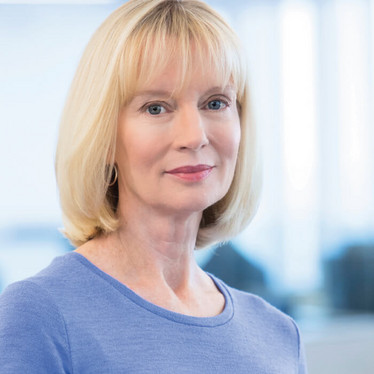Putting the Brakes on Aging
Sitting Down With… Joan Mannick, Co-Founder and Chief Medical Officer at resTORbio, Massachusetts, USA.

Who has inspired and mentored you over the course of your career?
My father was a great source of inspiration. Like many other of my family members, he worked in academic medicine and held the belief that a person should always try to make positive contributions to society. From a young age, I was intrigued by tropical infectious diseases and assumed that I would follow in my father’s footsteps and have a career in academic medicine. I gained my medical degree from Harvard Medical School and served as a faculty member specializing in infectious diseases at the institution for eight years. Though the experience was incredibly rewarding, juggling various aspects of life became challenging. I was a mother trying to best meet the needs of my children; an academic dedicated to running a lab; and a doctor trying to see patients.
Around the age of 50, I expressed my concerns to my father, who encouraged me to try something new. I knew that I wanted to bridge the gap between basic and clinical science because I was very familiar with them both, and I soon found myself as a Medical Director at Genzyme. I felt comfortable in the role because I knew I could work closely on the translation of basic science to patients.
The transition from academia to industry was one of the best moves I’ve made in my life, and I would implore anyone at any stage of life to evaluate whether their career is right for them. Be brave and take the leap because, more times than not, you’ll find something that you truly love and are passionate about!
After three years at Genzyme, I moved to Novartis where I had the good fortune to work under Lloyd Klickstein. He was the type of leader who wanted to make his whole team shine. He would give us credit for the work we did and supported us when our work entered new (and often unknown) territory. After working with Lloyd, I aspired to be such a good mentor. The people you work with are oftentimes more important than the actual work, so good mentorship is essential.
What appealed to you about working for Novartis?
I began working at Novartis in 2014 in its New Indications Discovery Unit. The unit was started to address areas of medicine that didn’t fit into the traditional categories used by most big pharma companies. Instead of focusing on more mainstream indications like cardiovascular disease or oncology, we tackled areas that typically fell between the cracks of drug discovery and development. It was a great period of my career because Novartis encouraged its staff to think outside the box in an effort to transform the practice of medicine – and that was exciting!
I was given free reign and started a drug development program focusing on the process of aging; after all, the elderly are the fastest growing population around the globe. I felt that my colleagues and I had the opportunity to make an impact on the lives of a significant number of people. I believe that by targeting the biological mechanisms controlling aging, we can challenge the notion that a person should expect to experience illness as they get older.
How did you end up at resTORbio?
My team and I completed two successful trials at Novartis, and the results suggested that targeting the biology of aging improves immune function and thereby decreases infection rates in the elderly. Although the research was illuminating, it didn’t fit into any of Novartis’ late-stage development programs – in part because one disease area couldn’t encompass all of the disease implications caused by aging. I worked with my cofounder, Chen Schor, to license the program– and eventually resTORbio was born.
What are the most important lessons you have learned since starting the company?
I’ve learned that regulators are open to the development of drugs targeting the biology of aging and that they recognize that we have the same goal: to help patients by finding medicines with clinical benefits. Scientists pursuing their own start-ups will inevitably have to work with regulatory bodies, so my advice is to be open to their suggestions and criticism because their intention is to ensure that safe and effective products make it to market.
In addition to working alongside regulators, it is also important to educate investors on the biology of aging and the opportunity it provides to help patients and the healthcare system. Rigorous scientific data has been generated by highly respected investigators around the globe on the identification of biochemical pathways that regulate the process of aging. The field has advanced to the point that we have been able to move this science to humans and evaluate the efficacy of compounds that target the biology of aging to treat aging-related diseases in randomized, double-blind, placebo-controlled trials.
What are the company’s plans for 2019 and beyond?
Finding drug targets for the biology of aging is no longer decades away! Our first of two planned Phase III clinical trials is underway, and we expect topline data from both trials in 2020.
How would you change the industry for the better?
Currently, not much attention is being paid to developing drugs for diseases that cause huge health burdens for millions of elderly people, such as neurodegenerative diseases, sarcopenia, viral respiratory tract infections, and certain types of heart failure. Therefore, we must spend more time and effort on developing new medicines that will help large populations suffering from these common diseases for which there are no current treatments.
After finishing my degree, I envisioned a career in science communications. However, life took an unexpected turn and I ended up teaching abroad. Though the experience was amazing and I learned a great deal from it, I jumped at the opportunity to work for Texere. I'm excited to see where this new journey takes me!



















